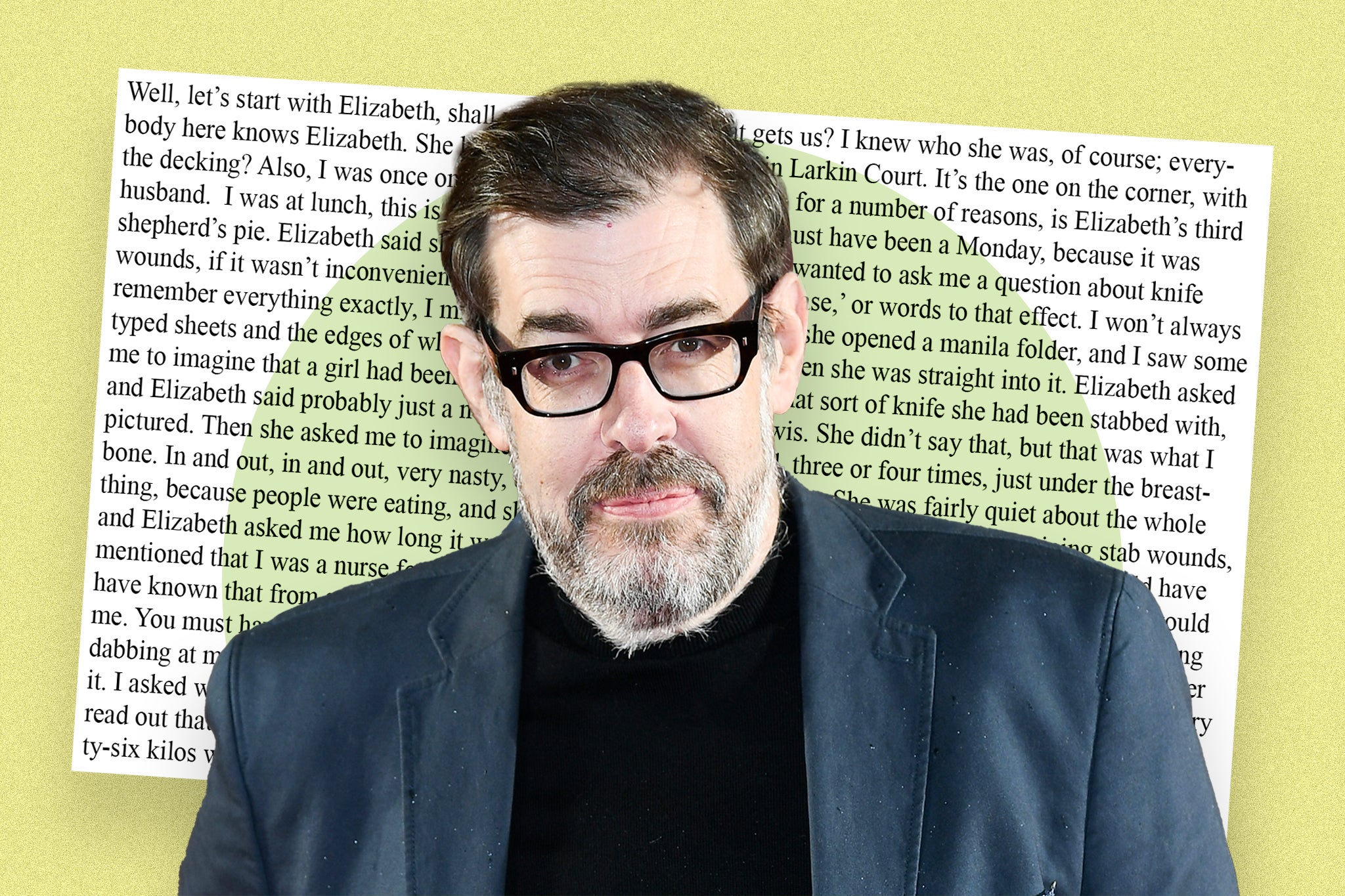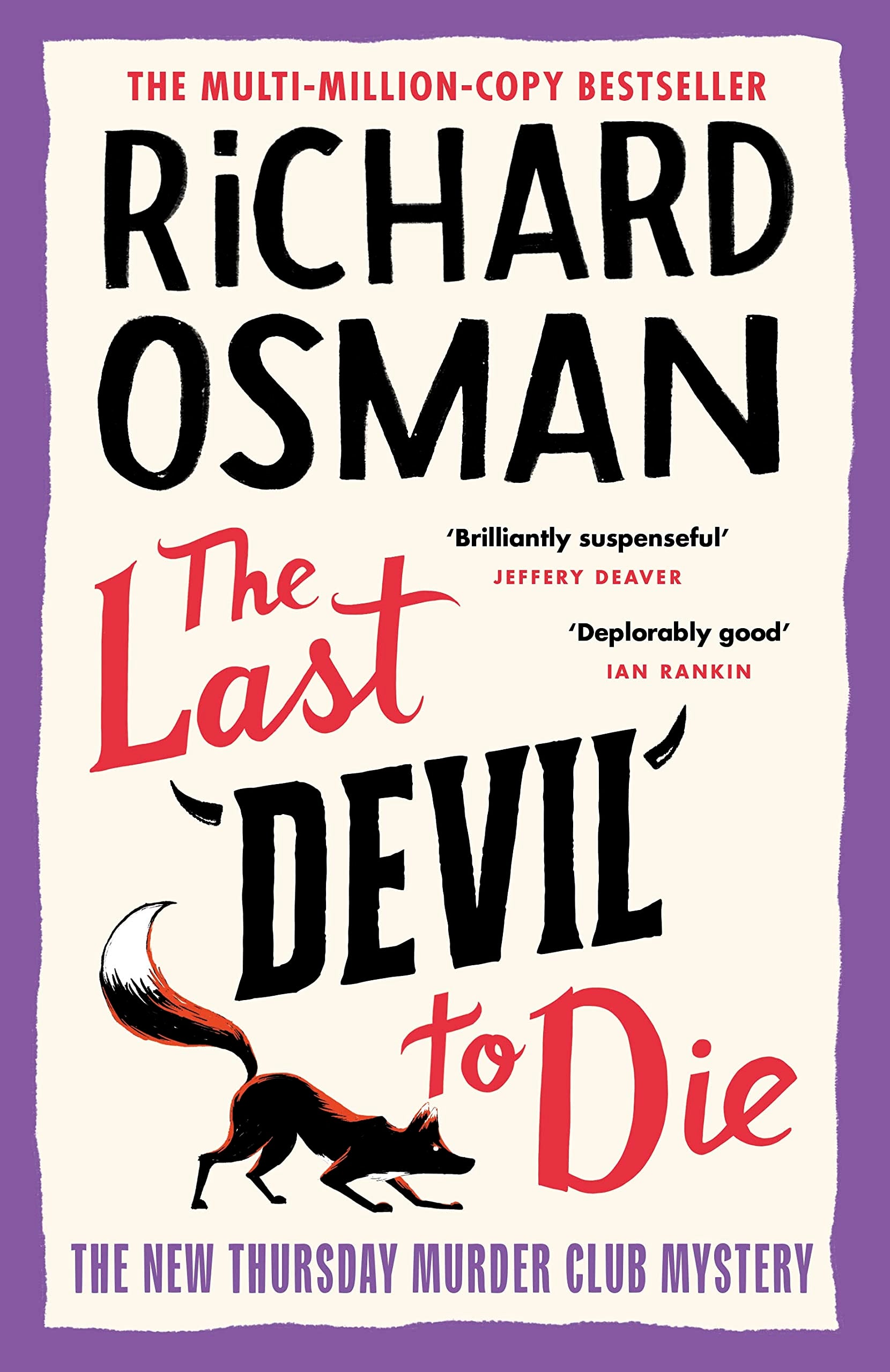From Pointless to the bestseller list: How Richard Osman became the biggest author in Britain
Richard Osman was once best known for hosting ‘Pointless’, refereeing Twitter’s ‘World Cup of Crisps’ and being very tall. Now his ‘Thursday Murder Club’ series has made him a bestseller with Steven Spielberg competing for the screen rights. Katie Rosseinsky dives into Osman-mania


In his former life in TV development, Richard Osman helped dream up the format for Pointless, the long-running BBC quiz programme that he would eventually co-host with Alexander Armstrong. The name of the game is to provide answers that are as obscure as possible: until he left the show earlier this year, Osman was on hand to regale contestants with bits of trivia that would qualify as a “pointless answer”, too niche to be mentioned by 100 members of the public in a quick-fire survey.
But if “crime writer” were to come up as a category on the show now, naming Osman would be a surefire route to elimination. Thanks to the staggering success of his mystery novels, which follow a group of crime-fighting pensioners based in an upmarket Kent retirement home, the genial, bespectacled presenter has become far too famous to serve as a useful answer on his own quiz show.
Osman-mania kicked off in September 2020 with the release of his debut The Thursday Murder Club, which introduced us to his central quartet of characters, residents of the fictional Coopers Chase. Elizabeth is a steely former MI5 agent who is always making allusions to various Cold War jaunts behind the Iron Curtain; Ibrahim is a fastidious and emotionally restrained ex-psychiatrist; Ron is a former trade union leader and rare left-wing presence in the small “c” conservative world of Coopers Chase retirement home; and Joyce is an unflappable retired nurse.
The group meets on Thursdays “in the Jigsaw Room, between Art History and Conversational French” to solve cold cases, rooting through old files provided by a former police officer. If you’re wondering about the GDPR implications, suspend your disbelief now. In the world of The Thursday Murder Club, attitudes to data protection range from lackadaisical to non-existent, CCTV footage and police records are frequently passed over to a bunch of old folks without question. When a spate of killings take place not far from their home, the gang can’t resist doing some investigating of their own.
Osman owes an obvious debt to Agatha Christie, but also to more recent light-hearted, larky mysteries by the likes of Alexander McCall Smith and Agatha Raisin author MC Beaton. The crimes “aren’t that grizzly, or they’re off stage, so you don’t see the death”, notes Dr Jennifer Young, head of writing and journalism at Falmouth University, who has researched the “cosy” crime phenomenon. And the gang tends to rely on good old-fashioned “social connections” to solve the mystery. The female characters, Young adds, tend to be “better at making those connections and having those conversations [with suspects] than the police are”. Joyce and Elizabeth are able to operate largely undetected, adds Dr Jo Parsons, a senior lecturer in English and creative writing at Falmouth, because the “invisibility of women once we hit a certain age” suddenly becomes an “incredible power”.
The Thursday Murder Club sold 45,000 copies in its first three days and, according to Nielsen BookData, it has been the bestselling book in the UK since then, selling more than two million copies across all print editions. Its sequel The Man Who Died Twice followed in 2021, and knocked Sally Rooney’s Beautiful World, Where Are You? off the number one spot. Last year, the third instalment, The Bullet That Missed, became the fastest-selling adult fiction hardback by a British author, beating a record previously held by JK Rowling’s The Casual Vacancy.
Glance through reviews and you’ll see words like “heartwarming” and “amiable” crop up over and over again, although The Times’ critic Joan Smith was a rare dissenter, describing The Thursday Murder Club as “a novel so flawed that it is hard to believe it would ever have been published without a celebrity’s name on the cover”. The general consensus seems to be that Osman’s books are “amiable if undemanding cosy caper[s]”, as The Guardian’s review put it – and that’s unlikely to bother Osman. “If I’m anything, I’m an entertainer,” he told The Washington Post in a 2022 interview. “I’m here to give people a book that they can’t put down, and if they’re on a plane journey then the plane journey goes quicker.”
British readers, it seems, can’t get enough of the formula. Nielsen reports that Osman has so far sold more than five million books, a number that will only rise further when his fourth novel The Last Devil to Die is released on 14 September. On the book charts, his only real rival is Colleen Hoover, BookTok’s reigning queen of high melodrama (last year, Hoover’s It Starts With Us grabbed the top spot on the annual UK bestseller list, but guess who happily occupied positions two, three and four?). We are a nation hooked on the antics of a group of well-mannered elderly sleuths who enjoy drinking white wine and solving crime. But how did a man best known for hosting game shows and refereeing The World Cup of Crisps on Twitter become such a force to be reckoned with in the publishing world?
When Osman’s first book deal was announced back in 2019, the general response could probably best be described as mild intrigue, with a little of the eye-rolling that often accompanies the news that yet another celebrity is getting in on the writing game (stars-turned-authors reliably command top positions in bookshops and major marketing budgets thanks to their already high profile). But there were a few hints of the success to come, too: namely reports of a ten-way auction leading to a rumoured seven-figure two book-deal (the sort of huge advance that feels like a relic from a bygone age when publishing was flush with cash).
Then came reports that Steven Spielberg’s production company Amblin had acquired the rights for a screen adaptation. The film has since been placed in the hands of British cinema’s resident OAP whisperer Ol Parker, the writer-director behind The Best Exotic Marigold Hotel and Mamma Mia: Here We Go Again. The cast list of those two films alone means he must already have a phone book filled with contact details of the great and the good of third-age thespians, so we can expect a smattering of A-listers. Osman has already suggested that the film’s producers “might have people in their fifties and sixties playing people in their seventies”, to ensure the film franchise can run and run: Lesley Manville, who has voiced two audiobooks in the series, would certainly make a good Joyce, while Kristin Scott Thomas has the requisite froideur to play Elizabeth (and her role in the TV version of Mick Herron’s Slow Horses proves she’s got the spy thing covered, too).

Parker will have plenty to work with. As the book series progresses, the crimes get ever more outlandish; there are diamond heists, dealings with various branches of the Secret Service, shootouts at the local pier and, in the fourth book, major drug deals gone awry. These high-octane antics are all couched within the gentle day-to-day routines of our elderly protagonists. Osman’s characters might enjoy staking out drug lords and murder suspects from the comfort of Ron’s Daihatsu, but they will inevitably fret about rushing home in time for their Waitrose home delivery while they do so. It’s a narrative pattern slash low-stakes running joke that Osman relies on heavily. For a case in point, in book two, Elizabeth has a case-solving revelation while listening to Jeremy Vine’s BBC Radio 2 show.
This is a world that many of Osman’s readers recognise, says his fellow “cosy” crime writer JM Hall, whose novels A Spoonful of Murder and A Pen Dipped in Poison centre on a trio of retired primary school teachers tackling mysteries. “I’ve never been in a CID office with lots of cold cups of coffee and big noticeboards, or an abandoned industrial facility where there’s a body, but I have been in a village, I have been in a primary school, I have been at a church fete,” he notes. But that familiarity, Hall adds, can still give stories like Osman’s “a bit of an edge” at the same time – as we see dark goings-on encroach on familiar settings.
Joyce and co are aided and abetted by an array of broadly drawn supporting characters. Local police officers Chris and Donna take what I call the Grantchester approach to criminal investigation: just as the police officer in ITV’s period detective drama is perfectly happy to let the local vicar interrogate suspects, Chris and Donna seem totally fine with outsourcing some of their investigations to a bunch of enthusiastic retirees; I suppose they probably are underfunded, after all. As the novels go on, Polish builder Bogdan seems to give up his construction work and essentially act as the Thursday Murder Club’s pro bono bodyguard.
I can’t even count how many cosy crime books I’ve been sent over the last few years
“Cosy” crime is not a new phenomenon: Agatha Christie and fellow writers like Dorothy L Sayers found fame with the formula – a brutal killing in a Middle England setting – in the 1920s and ‘30s, the period known as detective fiction’s golden age. But Osman’s success has taken contemporary readers’ appetites for the genre to a whole new level, says Nielsen BookData’s media manager Philip Stone. In 2019, pre-Osman, “cosy mysteries” accounted for £850,000 of book sales in the UK, according to Nielsen’s figures. But by 2022, the sub-genre was worth £21m.
“Once a big name breaks out, other [similar] books tend to follow as well,” Stone explains. Just as Stieg Larsson’s The Girl With the Dragon Tattoo upped demand for Scandi noir and The Girl on the Train made publishers snap up psychological thrillers, he says, The Thursday Murder Club has prompted a slew of similar efforts. Head into your local bookshop and you’ll probably spot titles like The Marlow Murder Club by Death in Paradise screenwriter Robert Thorogood or Murder Before Evensong by Rev. Richard Coles (another famous face trying his hand at crime writing).

“I couldn’t even count how many cosy crime books I’ve been sent over the last few years,” agrees Phoebe Morgan, Hodder’s commercial fiction publishing director; her team is also in the process of re-issuing Sayers’ back catalogue for a new generation of potential fans. Cosy crime titles old and new, she says, tend to feature deliberately similar covers and title fonts, a sort of visual short-hand “appealing to those readers hunting for their next cosy crime read”. Novelist Hall tells me he “appreciates that [publishing house] HarperCollins have branded [his] stories in a similar way” to Osman’s, with colourfully illustrated covers.
The consensus seems to be that Osman’s success is boosting the crime fiction market, rather than cannibalising it. Of course, his TV work gave him a ready-made platform, but Morgan notes that he has “worked really hard with Penguin [his publishers] to attend all the crime festivals and really immerse himself in the writing community … And he’s been supportive of other writers: he’s given quotes for some of the books that I’ve published from debut authors.”
He just paints such a positive picture of growing old
For Morgan, the “escapist” quality of Osman’s books – and of the entire cosy crime genre – goes a long way in accounting for their popularity. “[They] hold your attention in a way that normal crime [novels] would, without the menace or unease that you get from reading a normal one,” she says, “with the opportunity to play detective yourself in a charming, innocent way. There are twists, but they’re very gentle and mild-mannered.”
But for Osman’s fellow cosy crime novelist Hall, the appeal is more specific. “He just presents such a positive picture of growing old,” he says. Normally, he adds, “you read about a retirement home and there’s lots of people with gaping open mouths, wailing from time to time”, but in The Thursday Murder Club, “you’ve got older protagonists who are firing on all cylinders.” Mortality, Hall says, “is there” in the books (not least in one ongoing sub-plot dealing with dementia) “but it doesn’t define these people”. Osman’s portrait of ageing is an affirming one, that just happens to have arrived in the wake of the pandemic, when we were bombarded with alarming headlines about vulnerable older people trapped in infection-ridden care homes.
For his next act, though, Osman will leave Coopers Chase behind to start a new series, focusing on a father and daughter-in-law detective duo who run a private investigation company. He has described it as “a sort of Thursday Murder Club meets The Da Vinci Code”, a pitch that will surely cause booksellers to start seeing pound signs already. Osman, it seems, is just getting started – and just like his apparently unassuming characters, underestimate him at your own peril.
Join our commenting forum
Join thought-provoking conversations, follow other Independent readers and see their replies
Comments


Bookmark popover
Removed from bookmarks